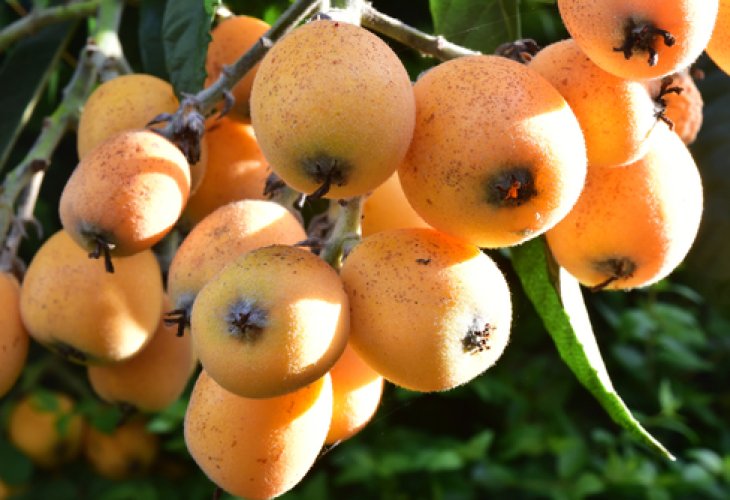The Wonders of Loquats: 5 Amazing Facts to Make You Want to Add Them to Your Diet
How do pectin and potassium, found in high levels in loquats, benefit our bodies? And beyond the fruit's health advantages, what's the connection to the leaves? The answers are in the following article.
 (Photo: shutterstock)
(Photo: shutterstock)Loquat season is approaching, and despite the high cost, it’s worth investing in consuming them, not just for their exquisite taste.
This orange fruit, originating from China, is rich in essential minerals such as potassium, magnesium, copper, Vitamin A, and folic acid—substances considered vital for heart health, maintaining normal blood pressure, healthy skin, and combating the free radicals roaming in our bodies that could harm them.
Typically eaten raw, the fruit can also be used to make various cooked delicacies, such as jams or as a refreshing addition to salads. So what else do we know about it, apart from the fact that it's delicious? Here are six extraordinary health benefits of this wonderful fruit:
Planning a Diet? Don't Forget to Add Loquat to Your Daily Menu
The pectin found in all fruits, including loquats, helps remove cholesterol from arterial walls, helping them function perfectly without unnecessary issues. For this reason, dietitians recommend its daily consumption for both those looking to lose weight and those with high blood fat levels (especially diabetics, but not only).
Beware of Free Radicals
Pectin is actually a polysaccharide containing dietary fibers that help, among other things, fight the free radicals in our bodies. Why is this important? Well, free radicals, as the name suggests, roam freely in our bodies and sometimes even wreak havoc. Various studies conducted in 2009 found that loquat extract given to cancer patients dealing with colon, oral, and lung cancer helped reduce the side effects of the disease, eliminate toxins, and maintain a clean mucous environment free of cancer cells.
Balancing High Blood Pressure
In addition to its pectin, the loquat is 'equipped' with high levels of potassium—a mineral whose role is to 'calm' the pressure exerted on the cardiovascular system. In its role, potassium balances sodium levels in the body, thereby reducing blood pressure and protecting us from heart attacks.
The Fruit Is One Thing, But What About the Leaves?
You'll be surprised, but there is a connection. According to ancient Japanese medicine, loquat leaf tea is an excellent remedy for treating winter ailments such as sore throats, colds, dry nose, phlegm, and chronic cough. If you intend to use them for this purpose, don't forget to strain the water well through a suitable sieve to prevent worms from entering the drink.
Sweet, Yet Still Helpful for Diabetics
Since loquats contain only a few calories, they are often included in the daily diet of diabetics—and for a reason. Their dietary fibers specialize in 'suppressing' the uncontrollable urge to consume sweets and help boost the body's metabolism. Consuming up to two loquats a day for diabetics increases insulin production in the pancreas and lowers blood sugar levels.
Watch Rabbi Moshe Vaya's Video to Learn How to Identify 'Dangers' in Loquats:

